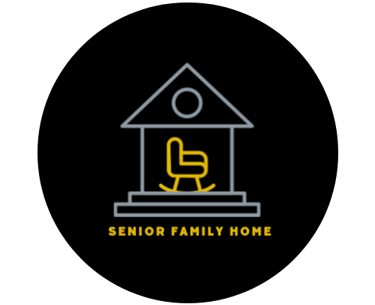Exploring the Different Levels of Care in Senior Living: A Comprehensive Guide


As our loved ones age, ensuring they receive the appropriate care and support becomes a top priority. Choosing the right level of care in senior living can greatly impact their well-being and quality of life. Residential care facilities for the elderly offer a range of options, each tailored to meet unique needs and preferences. In this comprehensive guide, we will explore the different levels of care available in senior living communities, empowering families to make informed decisions and highlighting the benefits of residential care facilities for their senior loved ones.
Independent Living:
Independent living communities are designed for active seniors who are relatively healthy and desire a lifestyle free from the burdens of home maintenance. These communities offer private residences, such as apartments or cottages, where seniors can live independently while having access to a range of amenities and services. Social events, recreational facilities, fitness centers, and dining options are available, encouraging socialization and community engagement. Independent living provides seniors with the freedom to pursue their interests and hobbies while enjoying the company of like-minded peers.
Benefits of Independent Living:
Maintenance-free lifestyle: Seniors can say goodbye to home maintenance tasks, as the community takes care of maintenance and repairs.
Socialization opportunities: Living in a community setting fosters friendships and a sense of belonging, combating feelings of isolation.
Active lifestyle: Access to fitness centers, group activities, and outings encourages seniors to remain physically and mentally active.
Security and peace of mind: Independent living communities often offer safety features like 24-hour security and emergency call systems.
Freedom and privacy: Seniors maintain their independence while having the option to participate in community events and services as desired.
Assisted Living:
Assisted living provides a higher level of care for seniors who require assistance with daily activities but still want to retain their independence. Trained caregivers are available 24/7 to help with tasks like bathing, dressing, medication management, and housekeeping. Assisted living communities offer private apartments or rooms, allowing residents to have their space while having access to support when needed. Social activities, dining services, and transportation are also provided to promote engagement and ensure seniors' well-being.
Benefits of Assisted Living:
Personalized care: Residents receive individualized care plans tailored to their specific needs and preferences.
Safety and supervision: Trained staff members are available to provide assistance and ensure residents' safety round the clock.
Enhanced quality of life: Seniors can enjoy an improved quality of life with the support and services provided, alleviating stress and concerns.
Social engagement: Assisted living communities foster a sense of belonging through organized social activities and events, reducing feelings of loneliness.
Assistance with activities of daily living (ADLs): Residents receive help with ADLs, enabling them to focus on enjoying life and pursuing interests.
Memory Care:
Memory care facilities are specially designed for seniors with Alzheimer's disease, dementia, or other memory-related conditions. These communities provide a secure and structured environment to ensure residents' safety and well-being. Trained staff members use specialized approaches to engage with residents and help them navigate the challenges of memory loss. Memory care communities offer structured daily routines, memory-enhancing activities, and sensory stimulation to promote cognitive function and emotional well-being.
Benefits of Memory Care:
Specialized care: Memory care communities have staff trained to handle the unique needs and behaviors of residents with memory impairment.
Safe environment: Memory care facilities are designed with safety features to prevent wandering and provide a secure living space.
Cognitive stimulation: Memory-enhancing activities and programs are tailored to stimulate memory and cognitive function.
Support for families: Memory care facilities offer support and resources for families coping with the challenges of caring for a loved one with memory issues.
Person-centered care: Residents receive personalized attention and care plans to address their individual needs and preferences.
Skilled Nursing/Long-Term Care:
Skilled nursing or long-term care is ideal for seniors with complex medical needs or chronic conditions that require ongoing medical attention and 24/7 care. Licensed healthcare professionals, including registered nurses and therapists, provide specialized medical care and rehabilitation services to improve seniors' health and well-being. Skilled nursing facilities offer long-term care for seniors who need continuous support, medical treatments, and monitoring.
Benefits of Skilled Nursing/Long-Term Care:
Expert medical care: Skilled nursing facilities are staffed with healthcare professionals who can manage complex medical conditions and provide specialized treatments.
Rehabilitation services: Seniors can benefit from various therapies, such as physical therapy, occupational therapy, and speech therapy, to improve functional abilities.
24/7 monitoring: Residents receive constant monitoring and access to medical attention when needed.
Comfortable and supportive environment: Skilled nursing facilities prioritize residents' comfort and well-being, creating a caring and nurturing atmosphere.
Comprehensive services: Skilled nursing facilities offer a range of services, including wound care, medication management, and dietary support.
Continuing Care Retirement Communities (CCRCs):
CCRCs, also known as life plan communities, provide a continuum of care that allows seniors to age in place as their needs change over time. Residents can start with independent living and have the option to transition seamlessly to assisted living or skilled nursing care if required. CCRCs offer a sense of security and stability, knowing that residents can access the care they need without having to move to a different community.
Benefits of Continuing Care Retirement Communities:
Aging in place: Residents can age in place and remain within the same community, surrounded by familiar faces and surroundings.
Smooth transitions: As care needs change, residents can transition to different levels of care without the stress of relocating.
Social integration: CCRCs promote social connections across various care levels, encouraging intergenerational friendships and support.
Access to amenities and services: Residents can enjoy a wide range of amenities, from fitness centers and dining options to cultural events and educational programs.
Peace of mind: CCRCs offer a sense of security and peace of mind, knowing that residents' future care needs are well-planned and accounted for.
Understanding the different levels of care in senior living is crucial when choosing the right option for your senior loved ones. Each level of care offers distinct benefits and services that cater to varying needs and preferences. By exploring the various residential care facilities available, families can find the perfect fit for their senior loved ones, ensuring they receive the care, support, and comfort they deserve. At Senior Family Home, we are committed to providing compassionate care and promoting the well-being of our residents. Our residential care facility offers a nurturing environment where seniors can thrive and enjoy their golden years with dignity and happiness.


